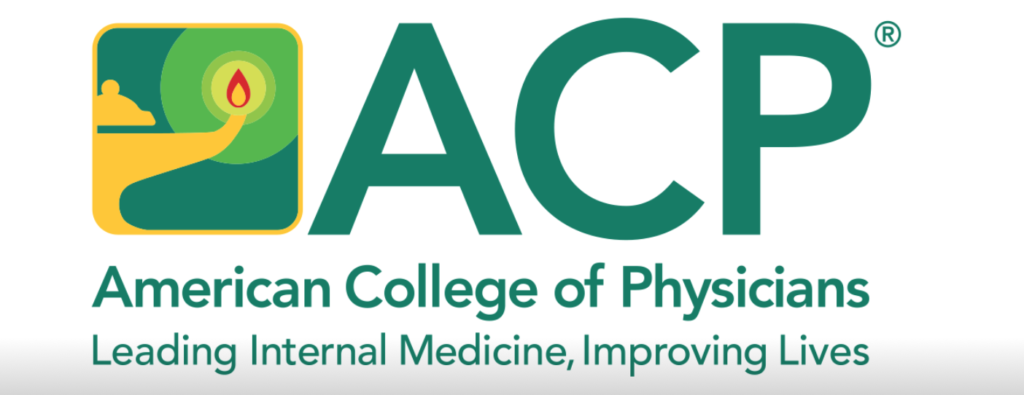From the American College of Physicians

The American College of Physicians (ACP) has called for systematic reform of the U.S. health care system. The reforms are detailed in a series of policy papers is published as a supplement in the Annals of Internal Medicine, a journal published by the College..
The papers address issues related to coverage and cost of care, health care payment and delivery systems, and barriers to care and social determinants of health, and offer specific recommendations about ways the U.S. can change the status quo. The papers are:
- “Envisioning a Better Health Care System for All: The American College of Physicians’ Call to Action”
- “Envisioning a Better Health Care System for All: Reducing Barriers to Care and Addressing Social Determinants of Health”
- “Envisioning a Better Health Care System for All: Coverage and Cost of Care”
- “Envisioning a Better Health Care System for All: Health Care Delivery and Payment System Reform”
“ACP set out to develop this new vision for health care by asking, ‘What would a better health care system for all Americans look like?” said Robert M. McLean, MD, MACP, president, ACP. “We believe that American health care costs too much; leaves too many behind without affordable coverage; creates incentives that are misaligned with patients’ interests; undervalues primary care and under invests in public health; spending too much on administration at the expense of patient care; and fosters barriers to care for and discrimination against vulnerable individuals.”
ACP’s specific recommendations provide a foundation for achieving the organization’s vision for a better health care system for all, in which:
- Everyone has coverage for and access to the care they need, at a cost they and the country can afford.
- Social factors that contribute to poor and inequitable health are addressed. Barriers to care for vulnerable and underserved populations are overcome, and no person is discriminated against based on personal identity characteristics.
- Payment and delivery systems put patient interests first, and support physicians and their care teams in delivering high value, patient-centered care.
- Unnecessary administrative spending costs are redirected to funding health care coverage and research, public health, and interventions to address social determinants of health.
- Clinicians and hospitals deliver high value, evidence-based care within available resources, and the public and physicians are involved in determining priorities and allocating funding and resources.
- Primary care has equitable payment levels between complex cognitive care and procedural care, and payment systems support the value that internal medicine specialists bring to patient care.
- Financial incentives are aligned to achieve better patient outcomes, lower costs, and reduce inequities in health care.
- Inefficient administrative and billing tasks are removed, documentation requirements are simplified, payments and charges are more transparent and predictable, and delivery systems are redesigned to make it easier for patients to navigate and receive needed care conveniently and effectively.
- Value-based payment programs support clinical care team collaboration and use only appropriately-attributed, evidence-based, and patient-centered measures.
- Health information technologies enhance the patient-physician relationship, facilitate communication across the care continuum, and support improvements in patient care.
The papers were developed based on examination and analysis of the strengths and weaknesses of the current U.S. health care system and ACP’s analysis of the major problems with American health care.
- In “Envisioning a Better Health Care System for All: Coverage and Cost of Care,” ACP recommends transitioning to a system that achieves universal coverage with essential benefits and lower administrative costs through two potential approaches: a single payer financing system or a publicly-financed coverage option with regulated private insurance.
ACP asserts that under a single payer or public option model, cost-sharing should be eliminated and payments to physicians and other health professionals, hospitals, and others delivering health care services must be sufficient to ensure access and not perpetuate existing inequities including the undervaluation of primary and cognitive care.
- In “Envisioning a Better Health Care System for All: Health Care Delivery and Payment System Reforms,” ACP recommends that health care delivery and payment be redesigned to support physician-led, team-based care delivery models in providing effective, patient-and-family centered care.
ACP also calls for increasing payments for primary and cognitive care services, re-defining the role of performance measures to focus on value to patients, eliminating “check-the-box” reporting of measures, and aligning payment incentives with better outcomes and lower costs.
ACP also recommends eliminating unnecessary or inefficient administrative requirements, and redesigning health information technology to better meet the needs of clinicians and patients.
ACP proposes that costs be controlled by lowering excessive prices, increasing adoption of global budgets and all-payer rate setting, prioritizing spending and resources, increasing investment in primary care, reducing administrative costs, promoting high value care, and incorporating comparative effectiveness and cost into clinical guidelines and coverage decisions.
- In “Envisioning a Better Health Care System for All: Reducing Barriers to Care and Addressing Social Determinants of Health,” ACP calls for ending discrimination and disparities in access and care based on personal characteristics, correcting workforce shortages including the under-supply of primary care physicians, and understanding and ameliorating social determinants of health.
ACP also calls for increased efforts to address urgent public health threats including injuries and deaths from firearms, environmental hazards, climate change, maternal mortality, substance use disorders, and the health risks associated with nicotine, tobacco use, and electronic nicotine delivery systems.


